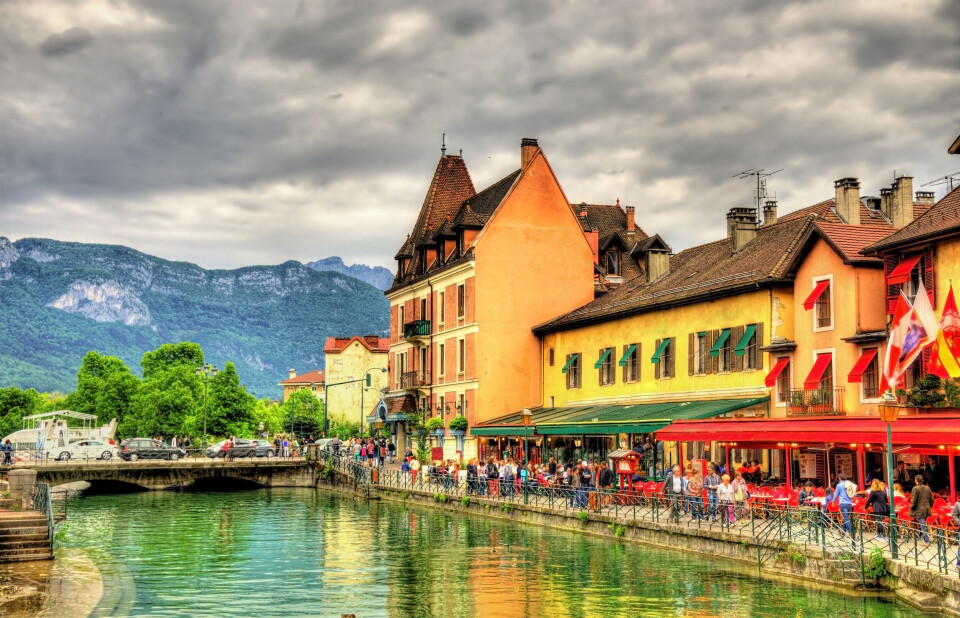-
Pistes closed, confinement orders: Alpine resorts deal with avalanche risk
Increased snowfall this weekend may cause further closures as busy school holiday season continues
-
Former French Interior Minister announces 2027 presidential candidacy
Bruno Retailleau recently asked prefectures to be tough on immigration
-
Ryanair axes Dublin-Rodez route but London connection retained
“We are disappointed but had no say in decision” say airport authorities
Annecy, Lyon, Avignon: The French towns most at risk of rising heat
A new list of France’s 70 largest towns shows that the east and south will routinely see hotter days and nights in the years to come

Annecy, Lyon, Avignon, Dijon, Saint-Étienne, and Chambéry are among the French cities to have topped a list of towns expected to see the hottest temperatures from 2040 according to scientific data.
The list, created by Le Figaro, uses data from scientists including forecasters at Météo France and climate projection project La Drias.
It looks at the projections for the 70 most-populated French towns and cities, and shows that increased heat is set to affect different areas of France in different ways. It will not hit at the same speed everywhere, nor in areas that we might most expect.
The list shows the number of extra days and nights per year that would be considered “abnormally hot” (more than 5C higher than the current normal temperature).
It concerns the summer months (June, July and August) for the 30 years from 2040 to 2070 and compares the temperature to the average period for the same time of year from 1975-2006.
The top 10 towns on the list are:
Annecy - 16 abnormally hot days, 11 abnormally hot nights
Lyon and surrounding areas - 14.8, 11.9
Saint-Étienne- 15, 11
Avignon - 16, 9
Valence - 16, 9
Dijon - 13, 11
Chambéry - 14, 10
Bourges - 13, 10
Clermont-Ferrand - 13, 10
Nîmes - 15, 8
Five towns come in joint 11th place.
They are:
-
Arles - 14.5, 7.5
-
Aix-en-Provence - 15, 7
-
Mulhousse - 13, 9
-
Nancy - 12, 10
-
Grenoble - 14, 8
The full list can be seen on the Le Figaro website here (in French).
East and south most affected
Overall, between 2041 and 2070, the biggest increase in heat is expected around the Rhône valley, with extreme temperatures set to become more frequent during the summer months.
The towns most likely to see a significant rise in heat are all in the east of the country, but this does not mean that other towns will not suffer from intense temperatures.
Those in the south that are most at risk include Arles, Nîmes, and Avignon.
Mary Kerdonkuff, deputy director of climatology and climate change services at Météo France, said: “This is linked to the gradients of climate change. The effects will be more marked in the south and east of France.”
This year alone, France has seen three heatwave episodes.
Read more: France set for its third heatwave of the year next week
The new list comes just over a year since Météo France and the Institut Simon Laplace made similar predictions, with Lyon, Annecy and Avignon also making their top five places set to have the most number of hotter days and nights.
Similarly, the latest report from the Intergovernmental Panel on Climate Change (IPCC), released on February 28 this year, said that flooding, heatwaves and farming losses are just some of the effects that global warming could have on France and the rest of Europe between 2021-2040 and 2040-2100.
Related articles
How climate change will affect major cities in France by 2050
Floods, heatwaves: New report predicts global warming effect on France
























